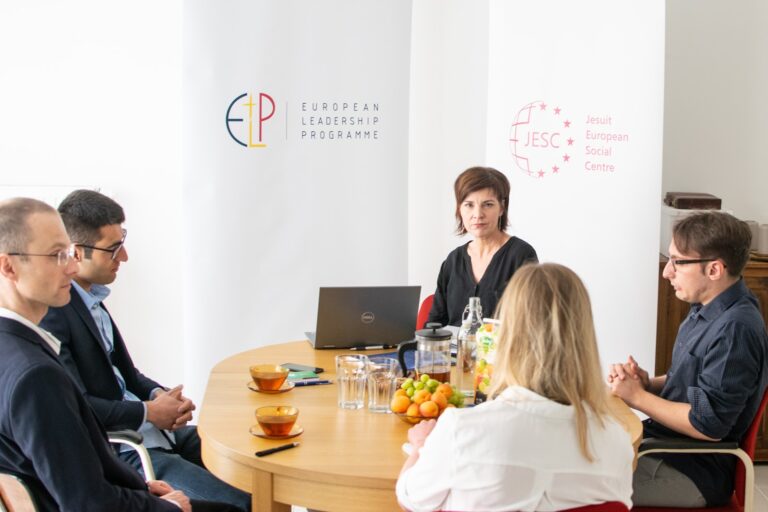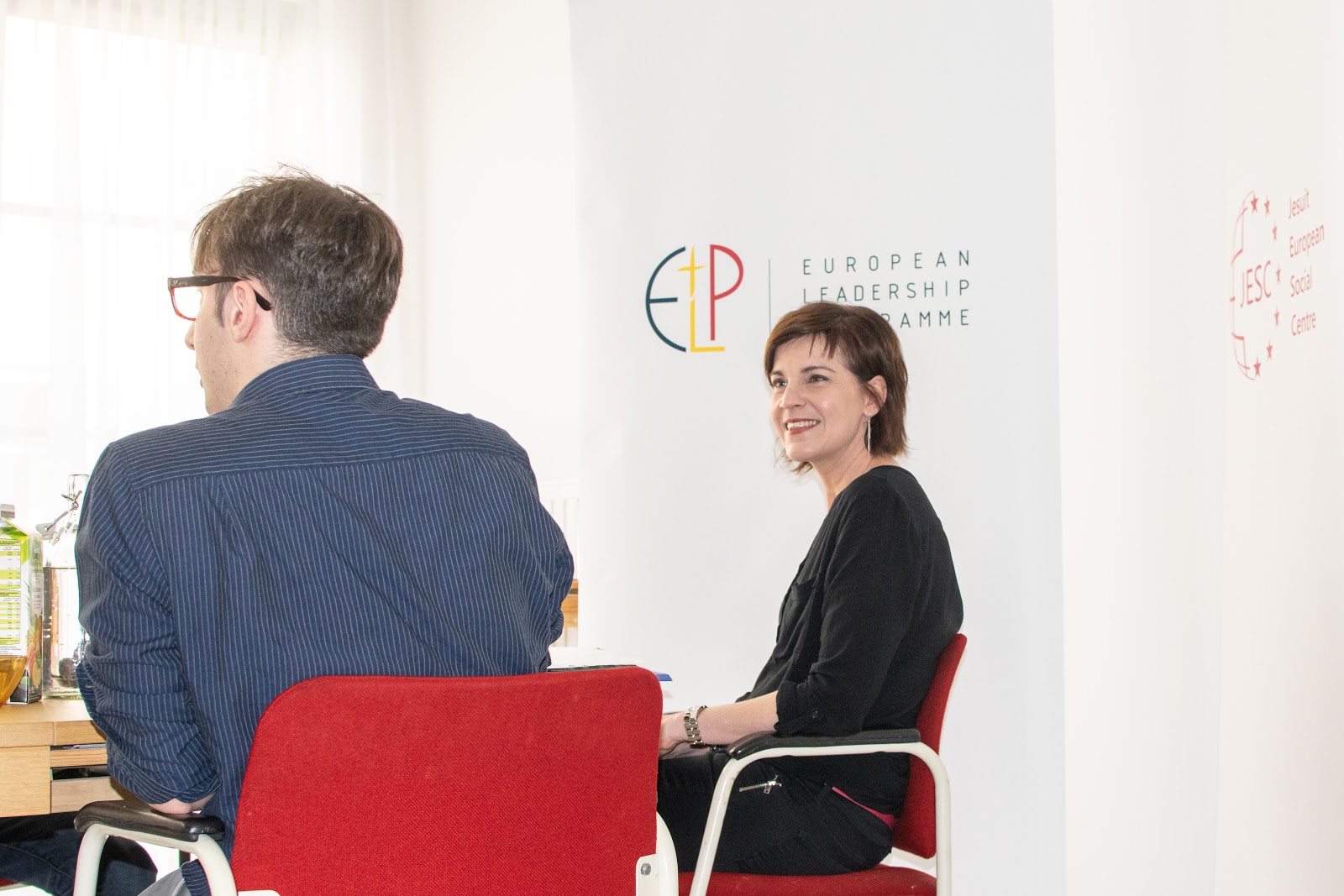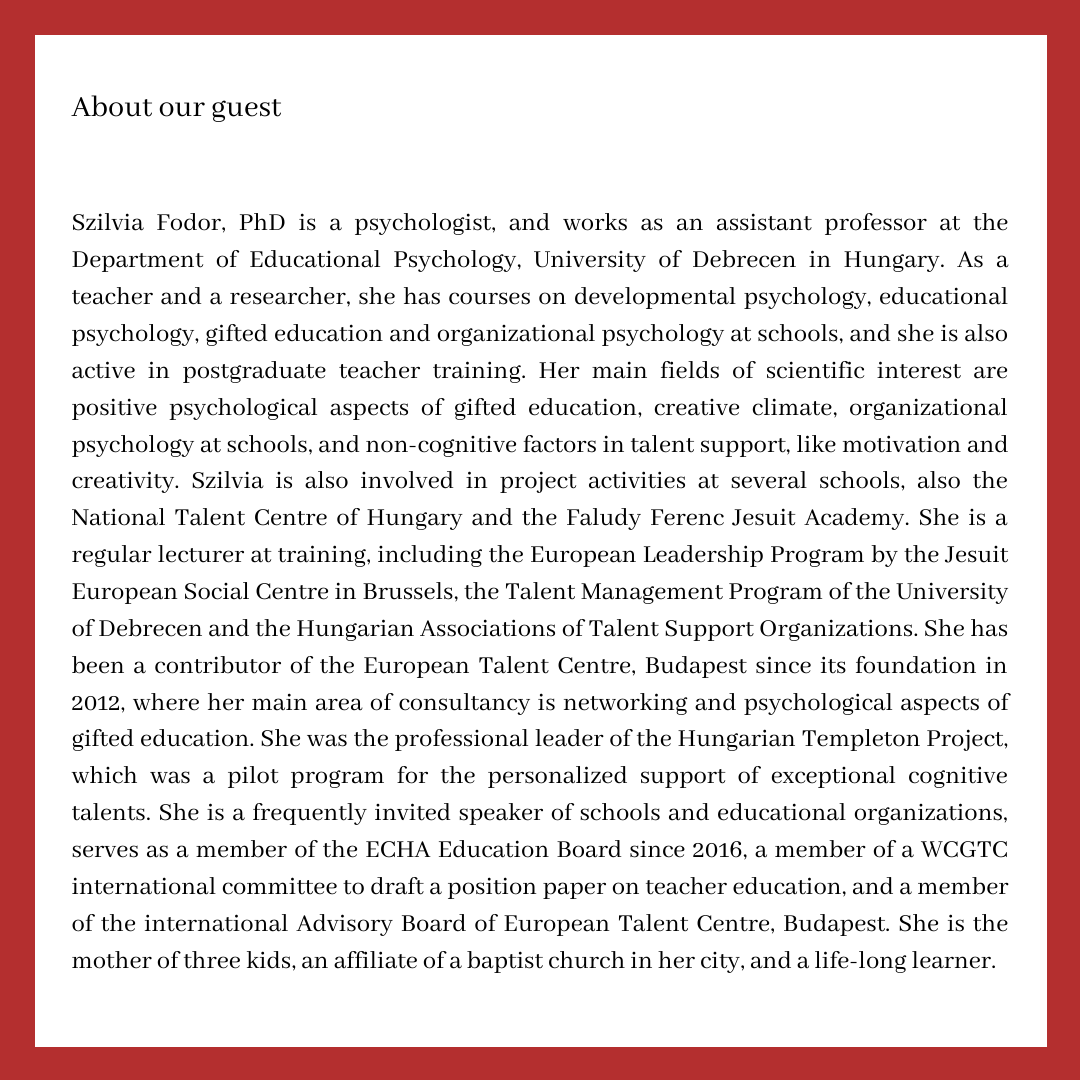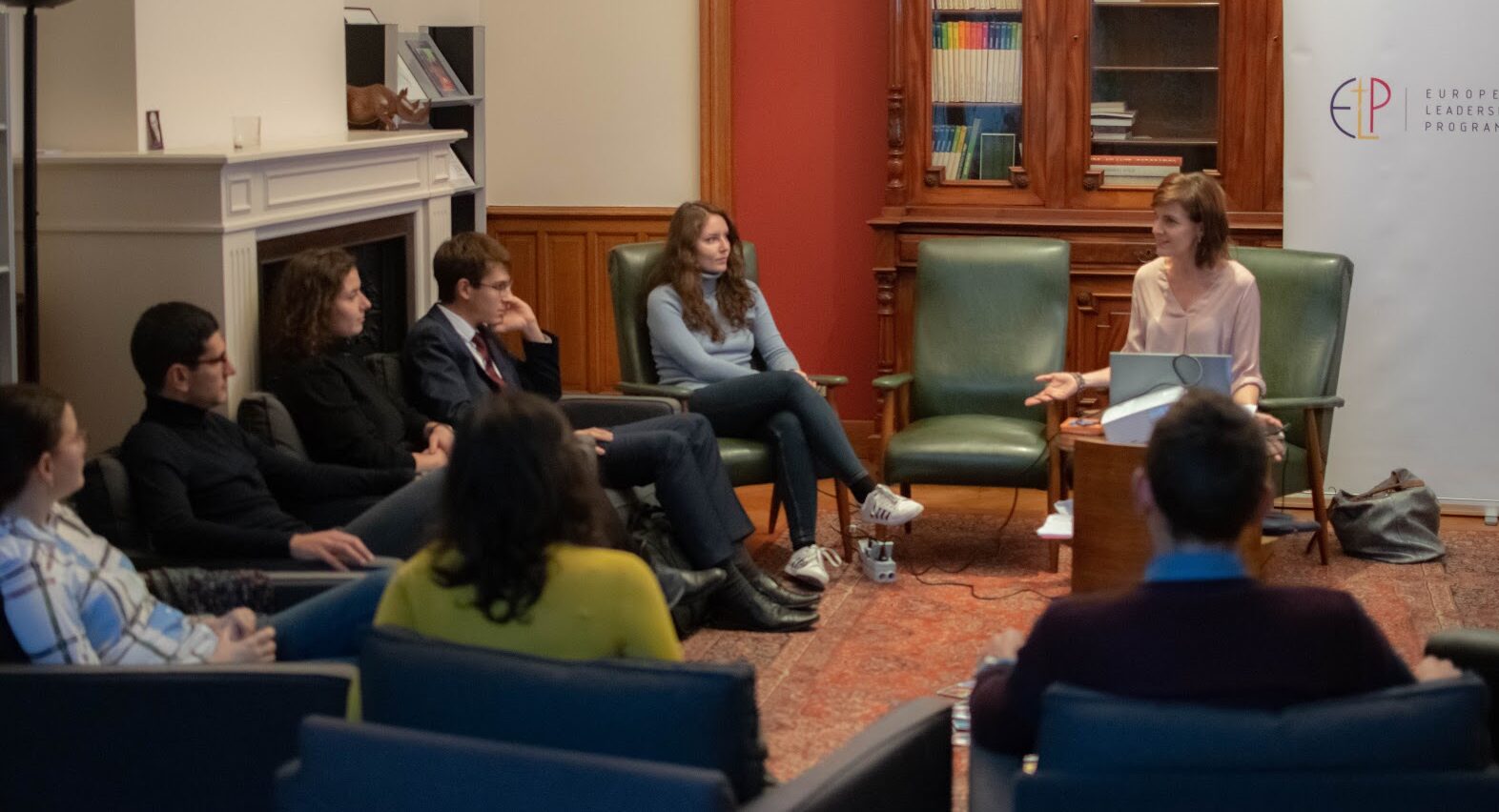
Interview to Dr. Szilvia Fodor psychologist, Assistant professor at the University of Debrecen and contributor at the European Talent Centre (Budapest)
Qs: Why do you think it is meaningful to work with youth?
Working with youth, in general, is always motivating and meaningful: it gives the feeling of having an impact on the future, thus combines the ’feeling good’ and ’doing good’, which are basic sources of motivation. I can pass forward the knowledge and experience I have and it is a privilege to support young people in finding their own strengths, interests and goals.
Working with ELP Fellows has some extras, because supporting young professionals on an international and EU level bears a special responsibility. Knowing that one of the fellows I talk to might become one of the future leaders of Europe, makes me do my best, which is demanding and fulfilling at the same time.
Qs: Why is the coaching segment of the Programme an added value?
Learning about different things is always interesting. However, learning about yourself, getting closer to yourself and your fellows is even more interesting because it is on another level of acquaintance: you learn how to use your knowledge and skills. By knowing yourself better and raising self-awareness, you go through a process of experiential learning about human motives and functions, which is a knowledge you can use all your life. As a leader, you always need a constant self-reflection, but also the conscious support of your colleagues’ personal needs. The attitude towards development and a growth-oriented mindset is also absolutely useful and promotes your openness to constant self-improvement.
Qs: How does positive psychology help leadership skills?
 Positive psychology has a strong focus on strengths and on the processes that contribute to a flourishing life. Knowing your strength, interest and goals, and knowing the strengths of others around you helps to find the right and fulfilling activities, thus gives the person the feeling of competence and flow.
Positive psychology has a strong focus on strengths and on the processes that contribute to a flourishing life. Knowing your strength, interest and goals, and knowing the strengths of others around you helps to find the right and fulfilling activities, thus gives the person the feeling of competence and flow.
Likewise, positive psychology emphasizes taking personal responsibility for your decisions and being in charge of your own choices. Being empowered and empowering others has a really strong effect on motivation and achievement.
Personal well-being, described by positive feelings, engagement and meaningful activities are elements much needed today. Some countries, such as New-Zealand and Bhutan realized that well-being is not only a personal issue but also a sign of a society’s good functioning. This means, the well-being model most likely has social and political relevance.
Qs: What are the main differences in having sessions with university students and with ELP fellows?
Most of my university students are high-ability and motivated students, so the level and the expectation is high. It is quite similar to my ELP experiences. However, ELP fellows are usually more ambitious and goal-oriented, and of course, culturally more diverse. During the sessions we have a special focus on leadership and social responsibility, so the topics are less extensive. The group is slightly smaller than that of a usual university setting, hence, the group dynamics also differ.
Qs: You have been coaching in the European Leadership Programme since the Pilot edition 2019 spring. What is your experience with the developments and the improvements?
I have clearly experienced the evolution of the programme, from the conception to these days. It is much better organized now, the staff is organised in a way which gives stability to the programme, and the values and goals are much clearer. It enables my work considerably, given the goals and expectations are better articulated and I can adapt to them much easier. And as we get to know each other, I also become more involved personally, and I feel a kind of responsibility towards the programme. Of course, there is always a place to develop, but with the growth mindset I experienced in the ELP staff, it seems to be on the right track.
Qs: The Fellows come from different European backgrounds. What is interesting about coaching intercultural youth groups?
Of course, everyone brings his or her own cultural background and habits into the group, and this diversity enriches the group coaching process a lot. Different perspectives and insights are really motivating and foster creativity.
However, I would rather emphasize the commonalities that derive from their situation as being young professionals in a foreign country: namely to face the questions of ’roots and wings’. Or to put it more concrete: to go home and support their own country or region, or to get involved into international and EU-level matters. To support their families or parents at home, or to pursue their own personal or professional goals. Setting up personal and career objectives is demanding, and it may be a difficult decision for young and ambitious professionals in this period of life and may result in a kind of identity crisis. Personal mentoring and coaching can be helpful to get closer to a satisfactory answer to these concerns.
Qs: For the ongoing 3rd edition of the ELP Fellows you introduced a game called FLIGBY focused on the concept “flow” for decision-makers to prompt leadership skills. Can you tell us more about its underlying psychology?
The concept Flow was introduced by Prof. Mihaly Csikszentmihalyi in 1990. Flow is a mental state in which a person performing an activity is fully immersed in a feeling of energized focus, full involvement, and enjoyment. It is related to creativity, happiness and achievement. Later on the Professor made great contributions to the business application of Flow in his 2003 book – [Flow Is] Good Business: Leadership, Flow, and the Making of Meaning, stating that experiencing flow is the difference between a great day or great performance at work and just a good day and adequate performance. So facilitating Flow is a crucial condition of good leadership and is vital in sustaining business productivity. Evidence shows that adopting Flow-promoting leadership results in reduced staff turnover and employee complaints, the work becomes a source of enjoyment and personal growth, and your company becomes a place that people will look forward to being a part of. The ’fligby’ online simulation game helps to raise players’ awareness of the importance of getting ‘into flow’ and to help others to get ‘into flow’.
Qs: What will be your message for the next cohort Fellows?
I think that it is a unique opportunity to get into a professionally high-quality, and at the same time a very inclusive community, with a strong Christian background and a responsibility toward those in need. I would recommend the Fellows to make use of the offered courses and be as active as possible; to be open to new experiences and to be grateful for them and, of course, to find the flow in their ELP activities. I am looking forward to it!
Interview to Szilvia Fodor for JESC Leadership Post
By Alba Requejo Hernández



